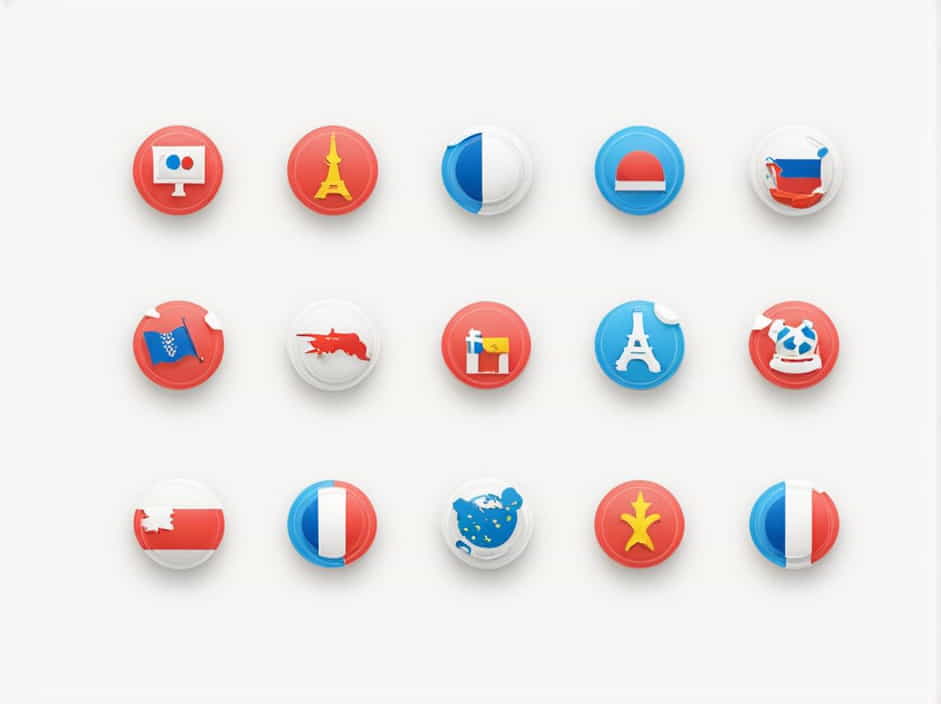French is spoken in many countries worldwide, but only one country is officially monolingual in French. This makes it a fascinating case in global linguistics. While nations like Canada, Belgium, and Switzerland have French as an official language, they also recognize other languages.
So, which country is the only truly monolingual French-speaking nation? The answer is France. Unlike other French-speaking countries, France has no official regional or secondary languages at the national level.
This topic explores France’s linguistic identity, historical background, cultural impact, and role in the global Francophone world.
1. France: The World’s Only Monolingual French-Speaking Country
a) What Does Monolingual Mean?
A monolingual country is one where only one language is officially recognized and used in government, education, and daily life.
b) Why Is France Monolingual?
France has long promoted linguistic unity, enforcing policies to preserve French as the only official language. While regional languages exist, they are not given official status.
c) Other French-Speaking Countries with Multiple Languages
Most French-speaking countries have other official or widely spoken languages:
- Canada: French and English are both official languages.
- Belgium: French, Dutch, and German are recognized.
- Switzerland: French, German, Italian, and Romansh are official languages.
- African Francophone Nations: Countries like Senegal, Cà´te d’Ivoire, and the Democratic Republic of Congo use French alongside indigenous languages.
This makes France the only country where French is the sole official language, with no legal recognition of any other language.
2. The Historical Roots of France’s Monolingualism
a) The French Revolution and Language Standardization
During the French Revolution (1789-1799), leaders sought to create national unity by promoting a single language. At that time, many regions spoke different dialects or languages, such as Breton, Occitan, and Alsatian.
- The government pushed for French to be the only language used in schools, administration, and public life.
- This policy aimed to eliminate regional linguistic diversity and reinforce French identity.
b) The Role of the Académie Franà§aise
The Académie Franà§aise, founded in 1635, has played a major role in preserving and regulating the French language.
- It ensures that French remains pure and free from excessive foreign influences.
- The organization actively discourages the use of English words in official communication.
c) Laws Strengthening French as the Sole Language
Several laws have reinforced France’s commitment to monolingualism:
- The 1992 Constitutional Amendment officially recognized French as the only language of the Republic.
- The Toubon Law (1994) required French to be used in government, media, and business, restricting foreign language influence.
3. Regional Languages in France: A Controversial Issue
Despite France’s official monolingualism, many regional languages exist, including:
- Breton (spoken in Brittany)
- Occitan (spoken in the south)
- Alsatian (spoken near the German border)
- Corsican (spoken in Corsica)
However, these languages do not have official status and are often not taught in schools.
a) The Debate Over Language Diversity
- Some groups advocate for greater recognition of regional languages to preserve France’s cultural heritage.
- The French government, however, has historically opposed efforts to give legal status to these languages, fearing it could weaken national unity.
b) The European Union and Language Rights
- France has been criticized by the European Union and UNESCO for not protecting its regional languages.
- Many other European countries, such as Spain and Switzerland, officially recognize multiple languages.
Despite these debates, France remains officially monolingual, making it unique in the French-speaking world.
4. The Global Influence of French from France
a) France as the Guardian of the French Language
Since France is the only monolingual French-speaking country, it plays a key role in shaping the global Francophone world.
- The Académie Franà§aise influences how French is spoken internationally.
- French spoken in Africa, Canada, and the Caribbean often follows French language policies set in France.
b) France’s Role in the Organisation Internationale de la Francophonie (OIF)
France is a founding member of the OIF, an organization promoting French language and culture worldwide.
- The OIF helps French-speaking countries develop education, media, and business opportunities in French.
- France provides financial and institutional support to countries that use French as an official language.
c) French in Global Diplomacy and Business
- French remains a major diplomatic language, used in the United Nations, the European Union, and international courts.
- It is also widely used in business, fashion, cuisine, and literature, maintaining its cultural prestige.
5. The Future of Monolingualism in France
a) The Impact of Globalization
- English is becoming more common, especially in business and technology.
- Many young people in France are bilingual in French and English, despite the country’s official monolingual status.
b) Digital Media and Language Change
- The internet has made it easier for foreign words, especially English terms, to enter the French language.
- The French government continues to promote French in media, but younger generations are adopting more English words in everyday speech.
c) Potential Changes in Language Policy
- Some activists argue for recognizing regional languages to protect France’s linguistic diversity.
- However, government resistance remains strong, and French is likely to remain the sole official language for the foreseeable future.
France is the only country in the world where French is the sole official language, making it unique in the Francophone world.
Despite regional linguistic diversity, strict language policies have kept France officially monolingual. This has helped France maintain its linguistic identity, but it has also sparked debates about language rights and cultural preservation.
As globalization and digital media evolve, French in France will continue to adapt, but its monolingual status is unlikely to change. France remains the central pillar of the French-speaking world, ensuring that the language continues to thrive both nationally and internationally.
